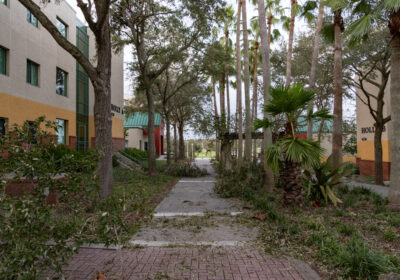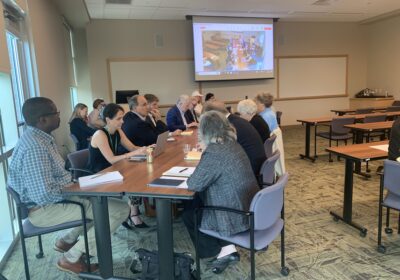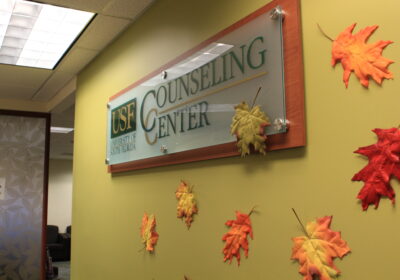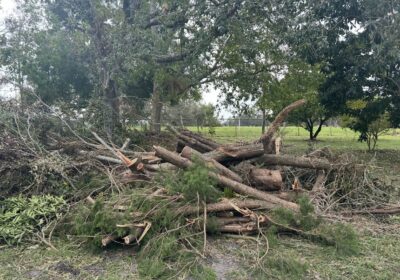Constricted by COVID-19: College of Engineering

This story is a part of a continuing series that highlights the changes deans and professors had to make in order to successfully transition from face-to-face instruction to remote online coursework as a result of the coronavirus outbreak.
While some engineering students were expecting to take an oath and have a graduation ceremony before entering the professional world, the plans have changed slightly due to the COVID-19 pandemic.
Now, as classes shifted to remote instruction, even the most awaited graduation ceremony was postponed, leaving students not only worried about how to manage the online coursework, but also their future post-graduation.
Robert Bishop, dean of the College of Engineering, said he has been working closely with faculty and students to meet the learning objectives remotely.
Bishop said the biggest challenges faced by the college is adapting hands-on labs to remote instruction as well as the online delivery of exams.
The delivery of exams for engineering majors, for example, is usually done in a paper format due to the length of the questions and calculations, according to Bishop. With the change, most exams are in a multiple-choice format.
“For engineering, the way we’ve done exams is in class and not typically multiple choice,” Bishop said. “Exams are typically working out problems and problem sets. And that’s more challenging to do online because it might take students half a page or a page of not just words but words and equations.”
Lillie Whitten, a freshman majoring in chemical engineering, said her transition to online classes has “not been enjoyable.” She said the lack of resources provided by her professors as well as notes has made the shift more challenging.
“Engineering-specific classes are much harder because there aren’t as many resources available to help with engineering-specific skills,” Whitten said. “On top of that, my engineering professor is not very good about uploading helpful materials or being lenient during this time of uncertainty.”
As well as online exams, online labs is another reality students will have to face.
Hands-on labs are also a big part of the engineering curriculum, according to Bishop. He said despite the challenges of delivering the coursework in an online platform, the faculty has managed to adapt to the technology.
“That’s a little bit more challenging, but we’re working through it,” Bishop said. “I mean, engineering is very familiar with technology. That’s what we do. We’re very familiar with using, designing and creating technology, so for us, I wouldn’t say the challenge has been that great.”
For engineering, most of the hands-on labs are usually completed before spring break, which makes it easy to meet the learning objectives and outcomes through an online platform, according to Bishop.
“Many of the learning outcomes are achieved through the analysis of the data as much or more, in many cases, than the actual gathering of the data,” Bishop said. “What we can do and what we do in some of the labs is we provide data for them.
“They may watch a video of a teaching assistant collecting the data, and then they take the data and do their analysis so that they demonstrate the ability to analyze the data, which is usually the most important learning outcome that we have.”
This has been an issue for some students.
Specifically, Kush Mathur, a junior majoring in electrical engineering, said it’s been an interesting change for him.
“It’s not the same and learning is surely affected,” Mathur said. “Professors are trying their best to make it as close as possible to an in-classroom experience with the videos. Some of them have been kind enough to give take-home exams to reduce the burden on students.”
While the experience changes from face-to-face to remote instruction, first-year biomedical engineering major Truman Roland has been seeing the positive side of the change.
“I think the effort on the professor’s part is very apparent, which I am grateful for,” Roland said. “Recorded video lectures are what I find the best since, although you can’t ask questions, you can pause at any time to take notes or really think about what’s being taught.”
However, for Andrew Lowe, a fifth-year student majoring in civil engineering, the transition to remote instruction has dramatically changed his learning experience due to problems accessing engineering-specific software.
“It’s been kind of frustrating as most of my classes require the use of some form of advanced software for assignments and the USF computers are the only place that the software is, so it’s difficult to get projects done,” Lowe said.
When it comes to graduation, Bishop said the college is “doing everything possible to make sure that students graduate on time.”
However, the shift to remote instruction also led the “Induction to the Profession Ceremony” to be conducted remotely.
Before graduating, engineering and computer science students take part in the Induction to the Profession Ceremony, an event during which they take an oath to the profession and receive their honors, rings and pins. The ceremony is held each spring and fall semester and takes place prior to the graduation commencement.
“It won’t be as personal,” Bishop said. “But we’re doing things like that. Although it’s not what we would like, as we would rather do it face-to-face, we are still giving the students the opportunity to make the pledge to the order of the engineer and induction of profession.”
As some students are focused on finishing their semester under remote instruction, others have been focusing on their future after graduation amid the coronavirus outbreak.
Lowe is set to graduate in May and, while the transition has been difficult for him, he said that his bigger concerns are laid out after graduation.
“The transition has been difficult but doable,” Lowe said. “The bigger concerns are going to be after the semester. Most places aren’t hiring graduates/bringing in interns, so there’s no way for people like me to get into the industry while the pandemic is occurring.”
With the sudden transition to remote instruction and without a certain date of when face-to-face classes will resume, Bishop said that the pandemic will create a lasting impact in the engineering education moving forward.
“As we start to learn about remote delivery of instruction, we’re going to find that in some cases, it is actually preferable than face-to-face,” Bishop said. “Not that we wouldn’t pursue face-to-face but maybe when we get together with the students, we can do something different. As we’ve done some remote instruction, we can come to the classroom and spend more time doing hands-on experiments.
“It will most certainly impact engineering education moving forward just because of what we’re going to discover. We’re going to discover some things that worked better and others that didn’t work at all as well as optimal ways to teach. As engineers, we will come to the right solution, which I think will be a little different from what it was last year.”






